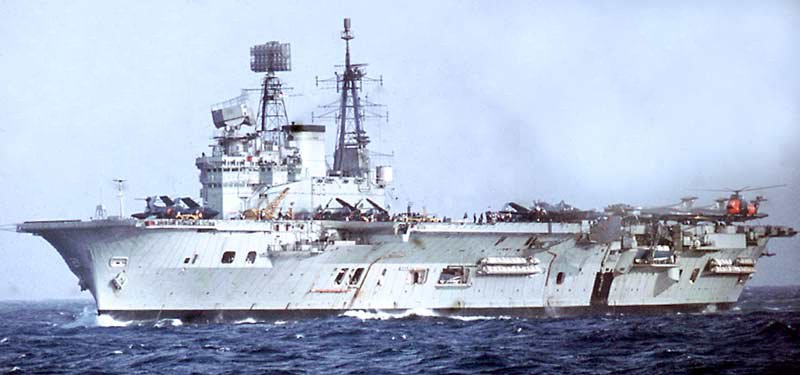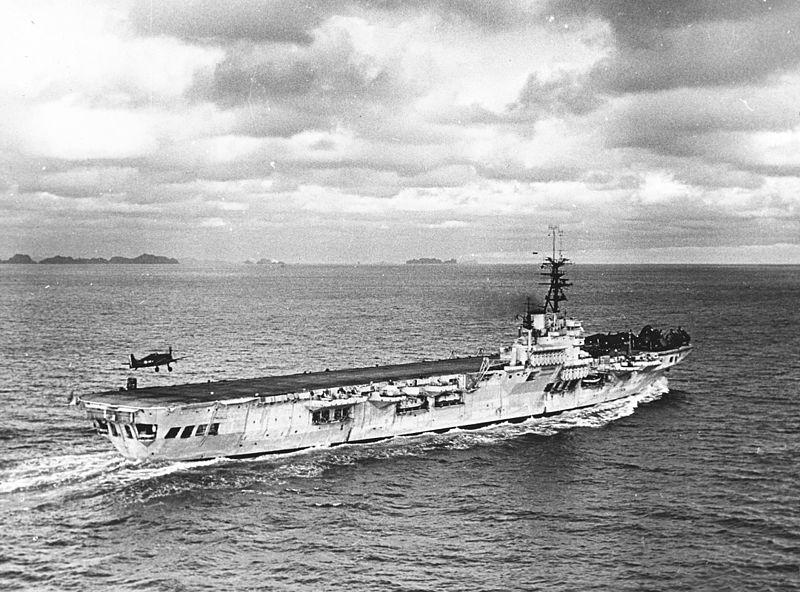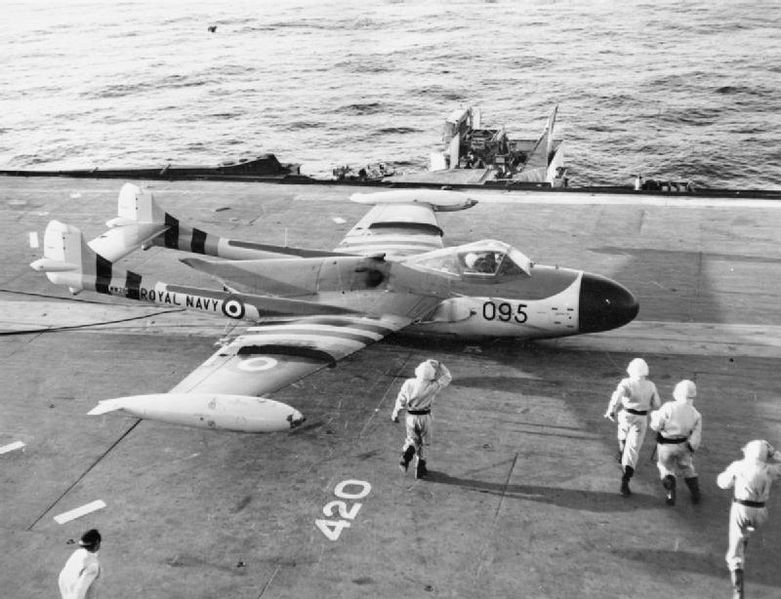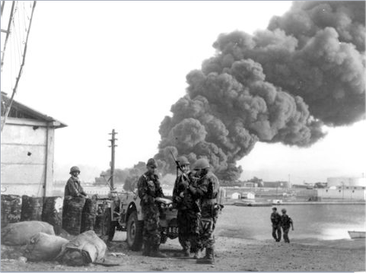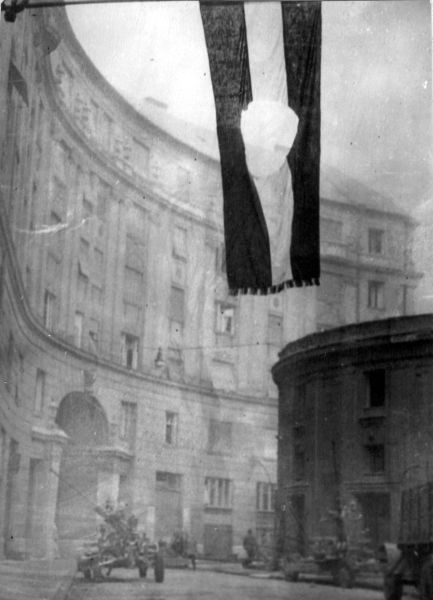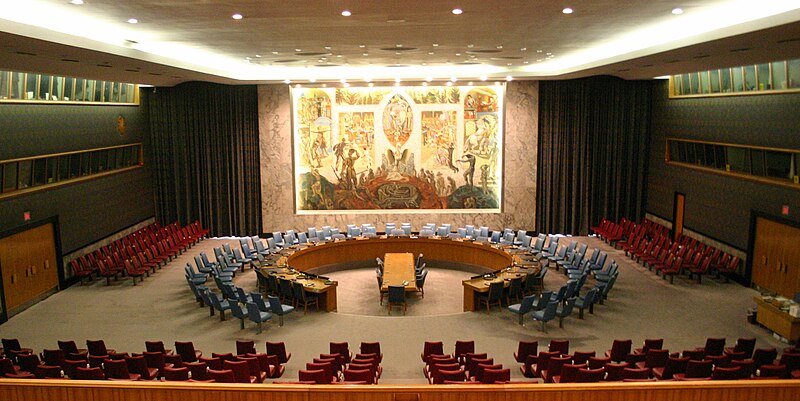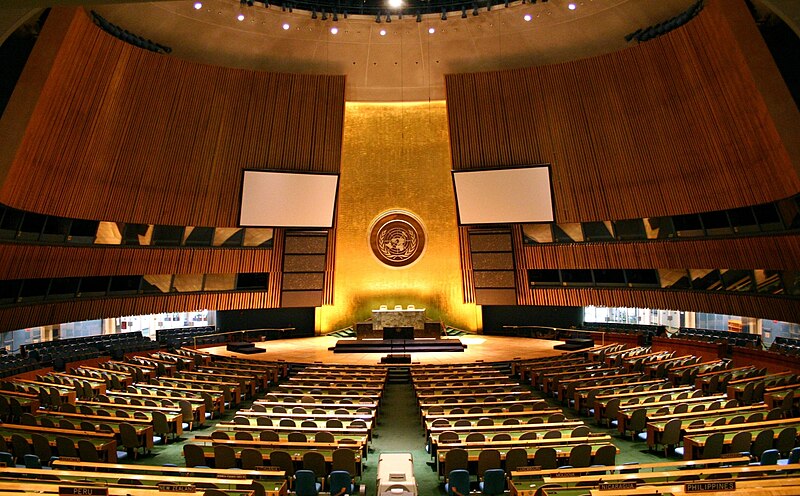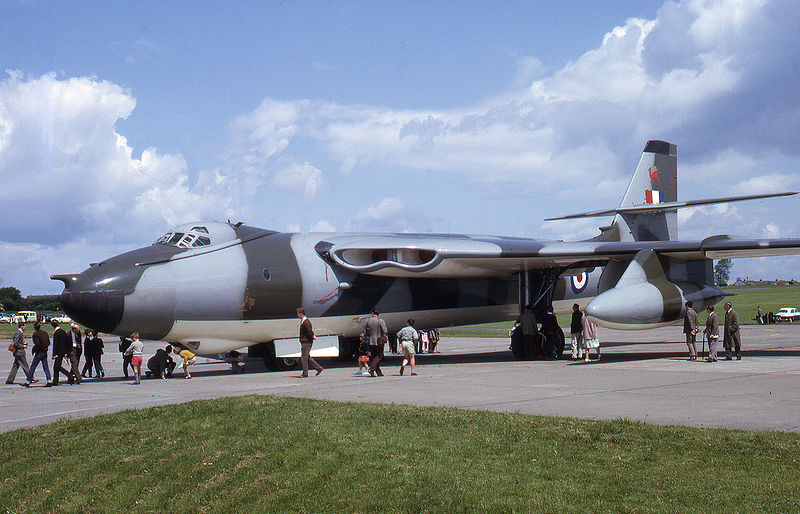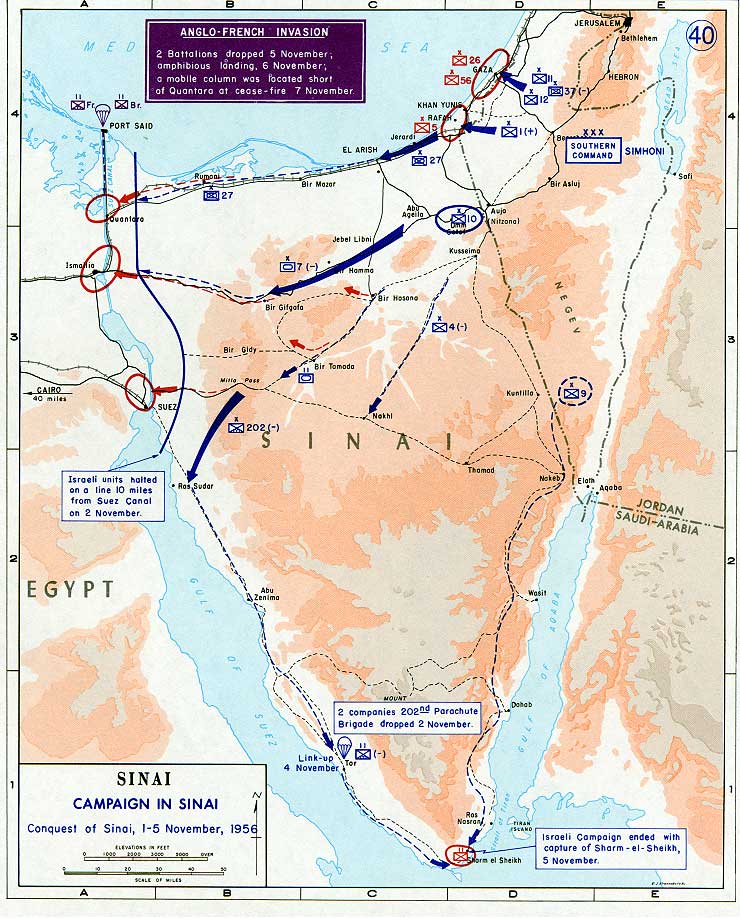abc123
Banned
Fighting in Sinai
The village of Abu Uwayulah in the central Sinai served as the road centre for the entire Sinai, and thus was a key Israeli target. To the east of Abu Uwayulah were several ridges that formed a natural defensive zone known to the Israelis as the "Hedgehog". Holding the "Hedgehog" were 3,000 Egyptians of the 17th and 18th battalions of the 3rd Infantry Division commanded by Colonel Sami Yassa. Yassa's men held a series of well fortified trenches. The "Hedgehog" could only be assaulted from the east flank of Umm Qataf ridge and the west flank of Ruafa ridge.
On 30 October, a probing attack by Israeli armour under Major Izhak Ben-Ari turned into an assault on the Umm Qataf ridge that ended in failure. During the fighting at Umm Qataf, Colonel Yassa was badly wounded and replaced by Colonel Saadedden Mutawally. To the south, another unit of the Israeli 7th Armored Brigade discovered the al-Dayyiqa gap in the Jebel Halal ridge of the "Hedgehog". The Israeli forces stormed and took the al-Dayyiqa gap. Colonel Mutawally failed to appreciate the extent of the danger to his forces posed by the IDF breakthrough at al-Dayyiqa. Led by Colonel Avraham Adan an IDF force entered the al-Dayyiqa and at dawn on 31 October attacked Abu Uwayulah. After an hour's fighting, Abu Uwayulah fell to the IDF. At the same time, another IDF battalion attacked the Ruafa ridge. Concurrently, another attack was launched on the eastern edge of the "Hedgehog" by the IDF 10th Infantry Brigade (composed mostly of reservists) that ended in failure. By noon, the Israeli Air Force had carried out a series of punishing airstrikes on the Egyptian positions, sometimes accidentally hitting IDF ground forces. Such was the tendency of the IAF to stage "friendly fire" incidents the IAF was arguably as much as danger to the Israeli troops as to the enemy.
After taking Abu Uwayulah, Adan committed all of his forces against the Ruafa ridge of the "Hedgehog". Adan began a three-pronged attack with one armored force striking northeastern edge of Ruafa, a mixed infantry/armored force attacking the north edge and a feint attack from a neighbouring knoll. During the evening attack on 31 October, a chaotic battle raged on Ruafa ridge with much hand-to-hand fighting. Through every IDF tank involved was destroyed, after a night's fighting, Ruafa had fallen to the IDF. Another IDF assault that night, this time by the 10th Infantry Brigade on Umm Qataf was less succcessful with much of the attacking force getting lost in the darkness, resulting in a series of confused attacks that ended in failure. Dayan, who had grown impatient with the failure to storm the "Hedgehog", sacked the 10th Brigade's commander Colonel Shmuel Golinda and replaced him with Colonel Israel Tal.
The city of Rafah was strategically important to Israel because control of that city would sever the Gaza Strip from the Sinai and provide a way to the main centres of the northern Sinai, al-Arish and al-Qantarah. Holding the forts outside of Rafah were a mixture of Egyptian and Palestinian forces in the 5th Infantry Brigade commanded by Brigadier General Jaafar al-Abd. In Rafah itself the 87th Palestinian Infantry Brigade was stationed. Assigned to capture Rafah were 1st Infantry Brigade led by Colonel Benjamin Givli and 27th Armored Brigade commanded by Colonel Haim Bar-Lev of the IDF. To the south of Rafah were a series of mine-filled sand dunes and to the north were a series of fortifed hills.
The village of Abu Uwayulah in the central Sinai served as the road centre for the entire Sinai, and thus was a key Israeli target. To the east of Abu Uwayulah were several ridges that formed a natural defensive zone known to the Israelis as the "Hedgehog". Holding the "Hedgehog" were 3,000 Egyptians of the 17th and 18th battalions of the 3rd Infantry Division commanded by Colonel Sami Yassa. Yassa's men held a series of well fortified trenches. The "Hedgehog" could only be assaulted from the east flank of Umm Qataf ridge and the west flank of Ruafa ridge.
On 30 October, a probing attack by Israeli armour under Major Izhak Ben-Ari turned into an assault on the Umm Qataf ridge that ended in failure. During the fighting at Umm Qataf, Colonel Yassa was badly wounded and replaced by Colonel Saadedden Mutawally. To the south, another unit of the Israeli 7th Armored Brigade discovered the al-Dayyiqa gap in the Jebel Halal ridge of the "Hedgehog". The Israeli forces stormed and took the al-Dayyiqa gap. Colonel Mutawally failed to appreciate the extent of the danger to his forces posed by the IDF breakthrough at al-Dayyiqa. Led by Colonel Avraham Adan an IDF force entered the al-Dayyiqa and at dawn on 31 October attacked Abu Uwayulah. After an hour's fighting, Abu Uwayulah fell to the IDF. At the same time, another IDF battalion attacked the Ruafa ridge. Concurrently, another attack was launched on the eastern edge of the "Hedgehog" by the IDF 10th Infantry Brigade (composed mostly of reservists) that ended in failure. By noon, the Israeli Air Force had carried out a series of punishing airstrikes on the Egyptian positions, sometimes accidentally hitting IDF ground forces. Such was the tendency of the IAF to stage "friendly fire" incidents the IAF was arguably as much as danger to the Israeli troops as to the enemy.
After taking Abu Uwayulah, Adan committed all of his forces against the Ruafa ridge of the "Hedgehog". Adan began a three-pronged attack with one armored force striking northeastern edge of Ruafa, a mixed infantry/armored force attacking the north edge and a feint attack from a neighbouring knoll. During the evening attack on 31 October, a chaotic battle raged on Ruafa ridge with much hand-to-hand fighting. Through every IDF tank involved was destroyed, after a night's fighting, Ruafa had fallen to the IDF. Another IDF assault that night, this time by the 10th Infantry Brigade on Umm Qataf was less succcessful with much of the attacking force getting lost in the darkness, resulting in a series of confused attacks that ended in failure. Dayan, who had grown impatient with the failure to storm the "Hedgehog", sacked the 10th Brigade's commander Colonel Shmuel Golinda and replaced him with Colonel Israel Tal.
The city of Rafah was strategically important to Israel because control of that city would sever the Gaza Strip from the Sinai and provide a way to the main centres of the northern Sinai, al-Arish and al-Qantarah. Holding the forts outside of Rafah were a mixture of Egyptian and Palestinian forces in the 5th Infantry Brigade commanded by Brigadier General Jaafar al-Abd. In Rafah itself the 87th Palestinian Infantry Brigade was stationed. Assigned to capture Rafah were 1st Infantry Brigade led by Colonel Benjamin Givli and 27th Armored Brigade commanded by Colonel Haim Bar-Lev of the IDF. To the south of Rafah were a series of mine-filled sand dunes and to the north were a series of fortifed hills.
